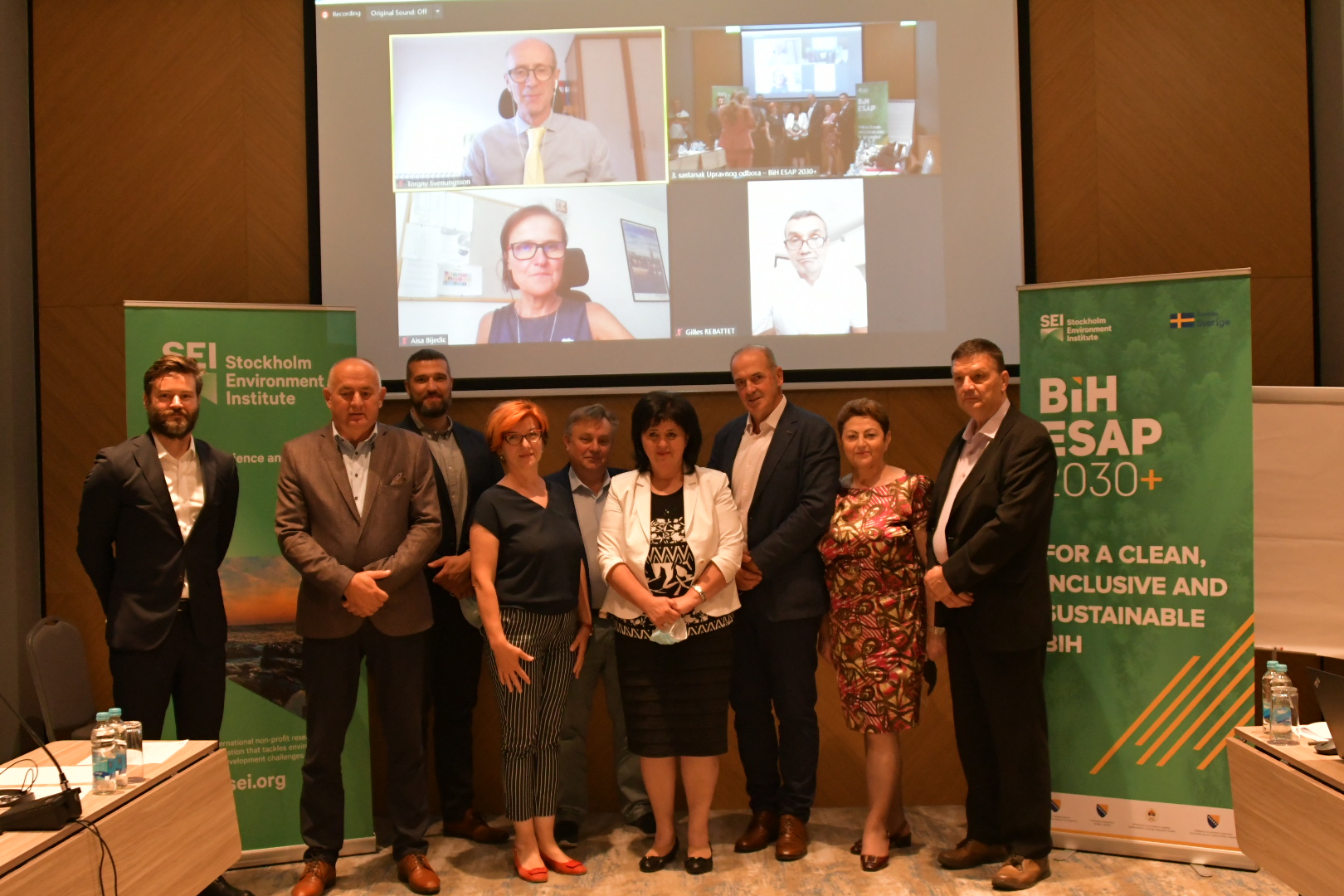
BiH ESAP 2030+ continues to progress at a fast pace – after a very intense period of completing the 4th round of Working Group meetings, the current ESAP Action plan now consists of identified key challenges and specified operational objectives for all seven ESAP thematic areas. The baseline and objectives have been confirmed and measures have been proposed for each defined objective in the ESAP action plan.
Mr. Torgny Svenungsson, director of the Swedish International Development Cooperation Agency, expressed satisfaction with the progress made for this round of working group meetings as well as the current dynamics of the project. “Sweden supports further cooperation between our countries, BiH’s path to EU membership as well as BiH achieving functional institutional framework”, said Mr. Svenungsson.
The 4th round of Working Group meetings was followed by the Policy Group (Assistant minister level) meetings. These were held in Sarajevo, Banja Luka and Brčko. Also the Steering Board (Minister level) meeting was held during July, in Banja Luka.
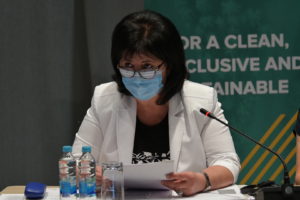
During the Steering Board meeting, Mrs. Srebrenka Golić, minister for spatial planning, construction and ecology of Republika Srpska, stated that BiH ESAP 2030+ is a “complex and comprehensive document, which is evidenced by the fact that it will cover seven EU environmental policy areas – water resources; waste management; biodiversity; air quality, climate change and energy; resources management; and environmental management. It is necessary to create a public understanding that the environmental sector is an outstanding development resource and can contribute to economic development. But it is also important to raise awareness that environmental issues will become a prerequisite for obtaining funds from international donors and the financial market.”
Policy group meetings
Similar to Working Group meetings, Policy Group meetings are formed for each jurisdiction level – BiH, Federation of BiH, Republika Srpska and Brčko district, where assistant ministers review and provide guidance for unsolved questions resulting from the inputs of working group members, comments on action plans and are informed on the current status of the project.
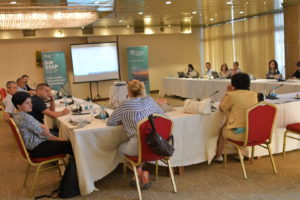
During the recent BiH level Policy Group meeting, Mr. Mirza Hujić, Assistant minister (MoFTER BiH) stated that the question of coordination is one of the most important for the environmental sector, and emphasized the role of MoFTER as a coordinating body when defining the policies. Mrs. Ljiljana Stanišljević, Head of Department for Environmental Impact Assessment and environmental permits of RS Government, had a similar observation during the RS level Policy group meeting and expressed satisfaction with the dynamics of the project and the fact that the document begins to take shape with different actors being involved. She stressed the importance of being ambitious but also realistic while preparing it. Mrs. Nada Ljubojević, representative of the Department of Spatial Planning and Property Affairs of Brčko district, praised the fact that activities are carried out according to the set plan despite the current conditions regarding the COVID-19 pandemic. Mr. Mehmed Cero, assistant minister (Federal Ministry for Environment and Tourism), indicated the importance of institutional networking and improvement of coordination mechanisms, especially regarding strengthening the coordination role of state institutions such as the MoFTER BiH. During the Policy Group meetings, project experts jointly emphasized the need for enhanced coordination, as well as the reporting according to the EU and international conventions, as a precondition for receiving the IPA funds.
Steering Board meeting
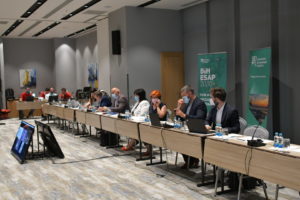
Banja Luka, July 9th, 2021 – Steering Board meeting gathered members from the state and entity institutions as well as international actors. One of the key questions discussed during the meeting was improving the coordinating role of MoFTER BiH, where members proposed the development of a Instruction/Decision or similar document which will serve as guidelines for coordination activities between MoFTER BiH, entities and Brčko district. The establishment of two environmental agencies was also considered to improve the monitoring and reporting system regarding environmental protection. Another important note from the meeting was that the Policy Groups and Steering Board members unanimously supported the proposal for capacity building within the environmental departments necessary for the implementation, monitoring and reporting of ESAP measures.
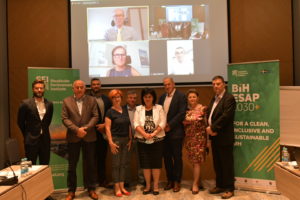
Mr. Gilles Rebattet (Head of Department for Economic Development, Infrastructure and Natural Resources of the EU Delegation in BiH) stated that BiH ESAP 2030+ should offer a pragmatic solution for efficient management, so Bosnia and Herzegovina would be able to meet its international obligations and advance on the path towards the EU integration. On that note, Mr. Rebattet stated: “Development of ESAP will contribute to meeting the obligations of the Stabilization and Association Agreement and future EU support regarding the environment. Therefore, mutual cooperation between the entities and the role of the state level in defining the principles and mechanisms of coordination is of paramount importance”.
What is next?
The fifth round of Working Group meetings is scheduled for autumn 2021, and prior to that, a financial evaluation of measures and prioritization of objectives and measures for each jurisdiction level will be conducted.
The project will offer strategies and action plans for four levels of government of Bosnia and Herzegovina with ambitious and clearly defined strategic and thematic goals. These are planned to be agreed on and become adopted measures for the next 10 years. They will be based on the principles of circular economy and decarbonisation, which will contribute to achieving the goals of the European Green Plan (EU Green Deal) for the Western Balkans.
BiH ESAP 2030+ uses a participatory approach, including representatives of relevant institutions, private and public sector, NGOs and members of academia. Additionally, BiH ESAP 2030+ integrates gender equality, social equity and poverty aspects (GESEP) within the document. The Strategic Environmental Assessment (SEA) for all four strategies and action plans is also being done in parallel with developing these strategic documents and when ready will be available to the general public.

